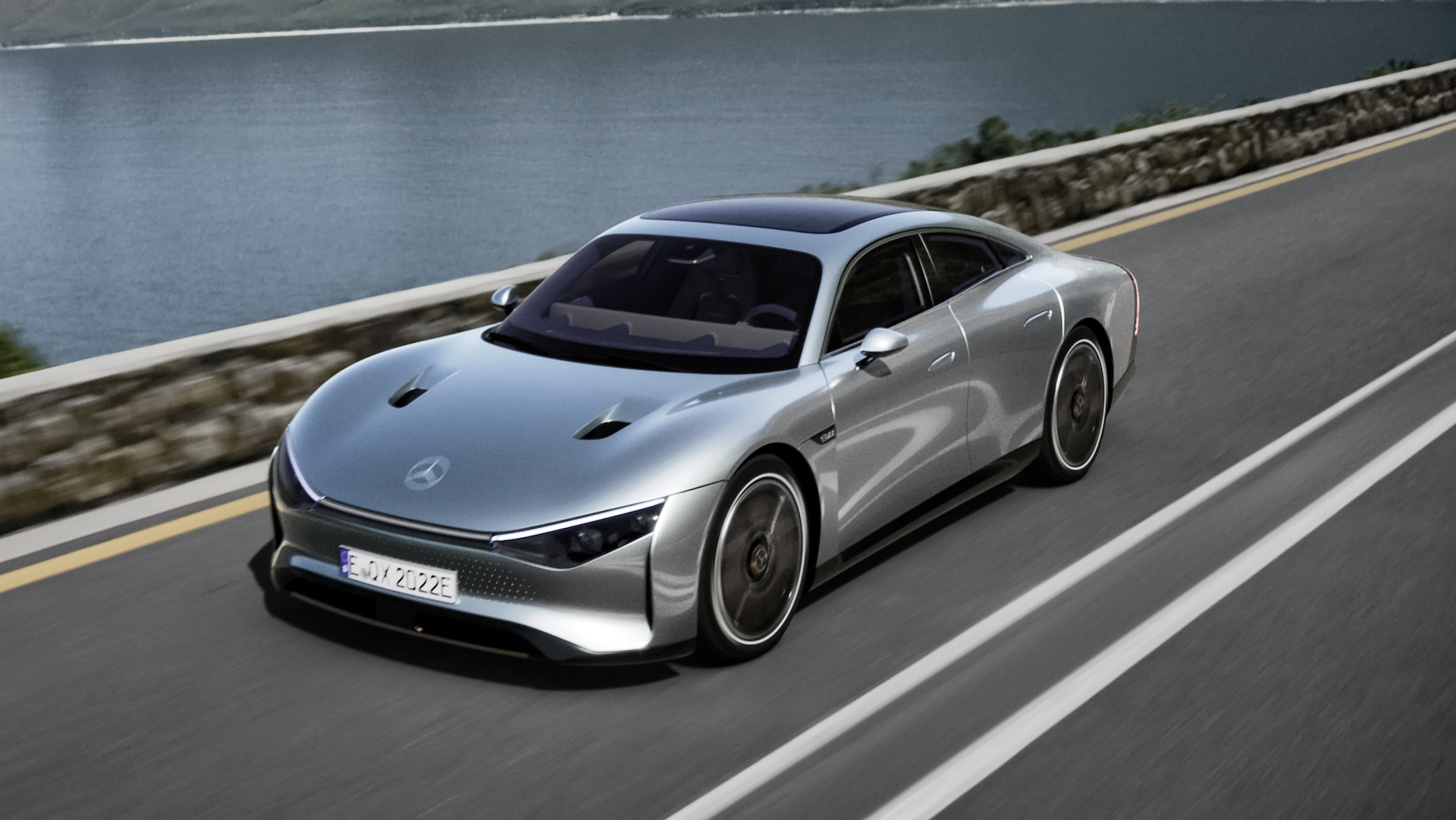

We may earn revenue from the products available on this page and participate in affiliate programs. Learn more ›
High performance in the EV battery realm can mean a lot of things. Whether that’s an incredible range or ultra-fast charging or just being rugged enough to withstand endless charge cycles, all of them are pretty dependent on battery temperature management. If it gets too cold, range is limited. If it gets too hot, the battery’s ability to accept current is also limited. In other words, most of the things that kill batteries are forms of degradation due to heat and cold. So, how can the Mercedes-Benz Vision EQXX concept avoid all this drama just by using air to cool its battery? Glad you asked.
In vehicles, cooling is the main issue. Although people in cold countries like Norway often use battery blankets to get their cars up to temperature on a frosty morning, it definitely isn’t a limiting factor for EV purchasing rate in the Nordic country. Whereas making safe car batteries that don’t overheat to a dangerous degree is a big challenge—one that LG and Chevrolet are currently taking a real beating over. Cooling is such a major problem that even the act of cooling charging cables is in the midst of a development race.

In high-demand environments like Formula One or Formula E, the solution has varied. FE teams have to contend with a spec battery supplied by McLaren to the series, which they then pump liquid coolant around. In F1, where battery development is open, Mercedes use a direct-liquid-cooling system where each battery cell is surrounded by circulating fluid, a technology it transferred to the new AMG hybrid powertrain‘s energy store.
Liquid cooling works really well but it means both having a load of liquid on board, which adds to the car’s weight—already a problem for EVs—and that you also need a pump system, which adds even more pounds and also draws power from the battery its protecting. In the ultra-long-range EQXX concept, though, Mercedes has come up with a different solution, one that’s kind of the absolute goal for automotive tech.
When building the EQXX, Mercedes knew it had to shed weight wherever possible to avoid losing energy and squeeze that 620-mile range from what’s essentially a pretty standard size EV battery. So if energy got thrown away on cooling, then that wasn’t going to it achieve its goal.

Instead, the EQXX uses “passive” cooling, with a combination of airflow around the battery in the car and a heat sink panel on the base of the battery that wicks away temperature. Obviously, with a drag coefficient of 0.17 airflow around the car, this has been managed to the absolute extreme. This is how it’s possible to get clever enough with it around the battery, but the EQXX pack takes it slightly further by actually having little vents on the battery itself, which open to draw in more air as it gets hotter.
Adam Allsop, advanced technology director for Mercedes’ High Performance Powertrains division (which makes their notably quite good F1 and Formula E power units) told Green Car Reports, that “the fact that we’re not chasing very high performance means we’re not stressing the cell.” The EQXX’s incredibly low power consumption of less than 10kWh per 62 miles means the battery isn’t being demanded to deliver huge amounts of energy, so can literally just chill out more.
In a way, Mercedes is able to get optimum performance by not demanding peak performance from the battery, and therefore, not overheating it. It’ll definitely be interesting to see how this technology evolves and eventually trickles down to vehicles like the 2022 Mercedes-AMG EQS, which is AMG’s first-ever electric road car.
Got a story tip? Mail it in to tips@thedrive.com
